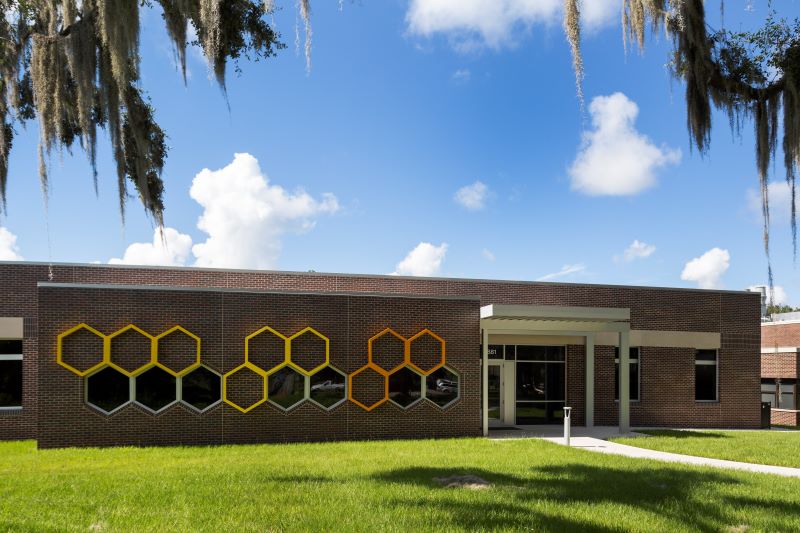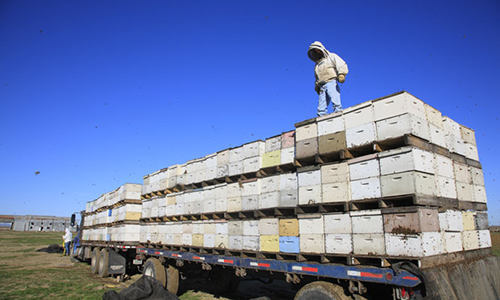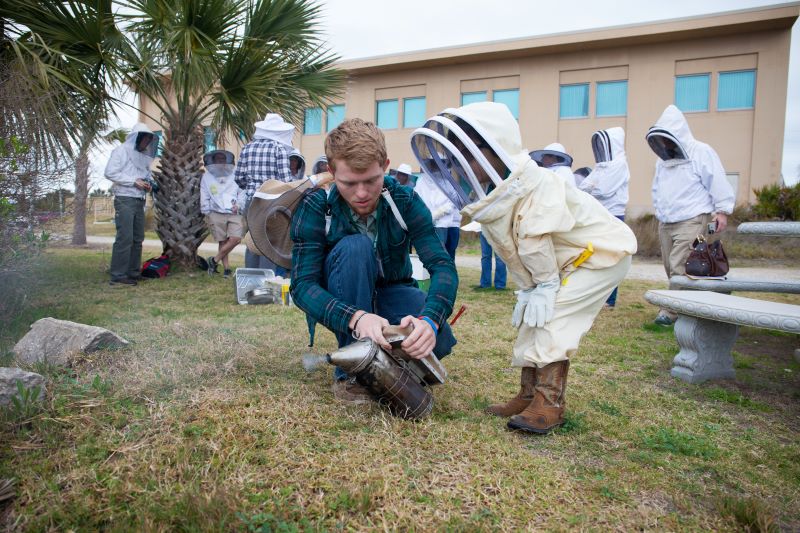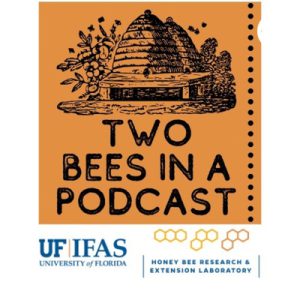Saturday, August 19th is National Honey Bee Day. It may be a day off for some of us, but honey bees are busy all the time, gathering nectar for the good of queen and colony. And as they do, they carry pollen from flower to flower, playing a crucial role in plant reproduction. As a matter of fact, as you enjoy your breakfast this Saturday, take a moment to thank a honey bee for every third bite you take. That’s because over 30 percent of plants grown for food get assistance from bees and other pollinators. Honey bees aren’t the only pollinators, but they are the most ecologically and economically important.
National Honey Bee Day: 10 Things You Didn’t Know about Honey Bees
Unfortunately for all life on our planet, honey bee colonies are in decline. The reasons for this are complex, but loss of habitat, pesticide use and parasites like varroa mite are among the chief concerns.
At the University of Florida’s Honey Bee Research and Extension Laboratory, scientists are working as hard as the insects they study to improve the health and productivity of honey bees everywhere.

Research conducted at the lab delves into the pests and pathogens that affect honey bees, the impacts of pesticides, nutrition and honey production, hive structure, and pollinator ecology.
This research feeds directly into the Extension work done at the campus lab and with beekeepers all over the state.
Bees are a buzzing business in Florida. In 2020, Florida beekeepers produced over 7,500 tons of honey and 300,000 pounds of beeswax.
In addition, Florida beekeepers are in demand throughout the country, shipping their colonies to apple orchards, almond groves and cranberry bogs for pollinator services.

In all, apiculture (bee farming) is a $93 million industry in Florida that supports 2,300 fulltime and part-time jobs.
Yet more than half of our state’s 5,000 beekeepers manage fewer than 10 colonies on their land. For these folks, beekeeping is a hobby, a science, or a small startup business. Beekeeping is not for the faint of heart, and colonies require care and know-how to remain healthy and productive.
To educate new and experienced beekeepers, the Honey Bee Lab conducts a two-day Bee College twice a year. Open to all levels of experience, Bee College is an opportunity to learn about honey bees and beekeeping from experts from UF/IFAS Extension and hives around the state.
You can also pursue beekeeping knowledge online. The UF/IFAS Master Beekeeper Program is an in-depth online course for the serious beekeeper who wants to understand their colonies and improve their skills.

On a more casual level, the Honey Bee Lab offers a growing library of bee-Learning short courses of five to ten lessons each on various bee and beekeeping topics.
 If you just want to listen in on the fascinating world of melittology (i.e., bees and bee science), check out Two Bees in Podcast. Over 151 episodes and counting, the Honey Bee Lab’s Dr. Jaimie Ellis and Amy Vu sit down with the world’s leading experts to talk about everything from bee genetics and beekeeping in the subarctic to monthly colony management and making money with honey.
If you just want to listen in on the fascinating world of melittology (i.e., bees and bee science), check out Two Bees in Podcast. Over 151 episodes and counting, the Honey Bee Lab’s Dr. Jaimie Ellis and Amy Vu sit down with the world’s leading experts to talk about everything from bee genetics and beekeeping in the subarctic to monthly colony management and making money with honey.
Let’s face it, honey bees do a lot of the heavy lifting needed to produce the food we eat and we can’t live without them. They deserve a special day of recognition, as well as our study, understanding and protection every day of the year.
#NationalHoneybeeDay #FoodIsOurMiddleName
Celebrate National Honeybee Day 2023 with a Honey Tasting in Fort Pierce
 1
1

